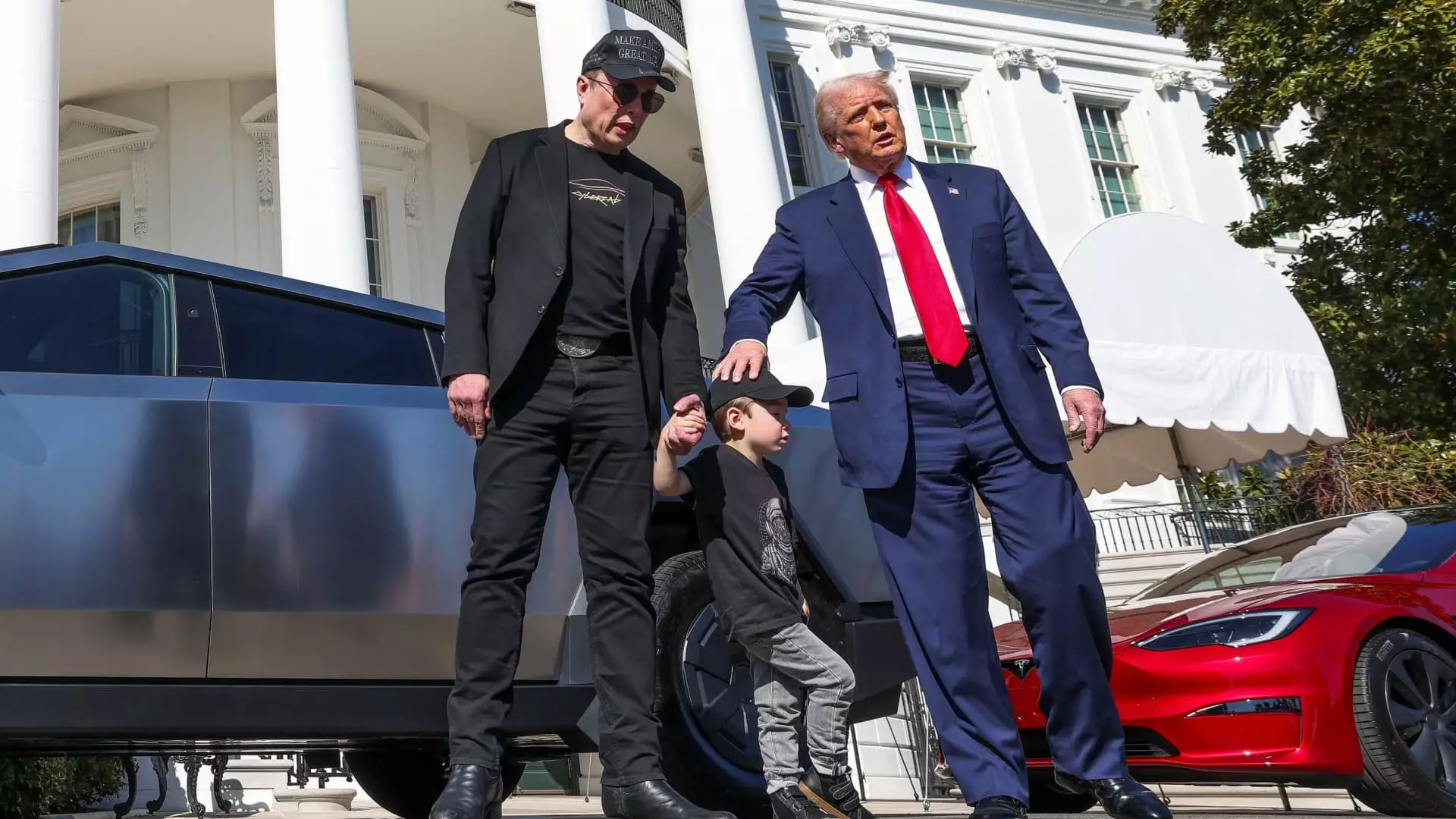In an era where the economy hangs precariously on the thread of trade policies, Elon Musk’s recent comments during Tesla’s first-quarter earnings call reveal a complex relationship with tariffs. Musk, known for his often controversial statements, expressed a dislike for unpredictable tariffs but simultaneously deferred the pivotal responsibility to the President of the United States. This ambiguous stance raises questions—how much influence does a billionaire technocrat wield in economic policy, and what does his conflicting position imply for the broader automotive industry?
Musk’s assertion that Tesla is “the least-affected car company with respect to tariffs” paints an optimistic picture for his brand. Yet, the underlying reality suggests a more precarious scenario. Despite Musk’s belief that Tesla has secured a competitive edge through “localized supply chains,” the stark 20% decline in automotive revenue year-over-year sends a counter-narrative; one that hints at greater vulnerabilities masked by his confidence. The very foundation of Tesla’s supply chain—sourcing materials globally, including from China—may make the company susceptible in ways Musk has not fully acknowledged.
A Flawed Economic Philosophy
Musk’s economic philosophy, which advocates for lower and more predictable tariffs, echoes a familiar liberal trade mantra. Yet, there is a palpable irony in his approach. As one of Donald Trump’s prominent supporters, Musk seems to evade the contradictions of aligning with a government that promotes high tariffs while professing his support for free trade principles. When the President suggested extensive tariffs, Tesla’s stock plummeted—as if the market itself screamed in disapproval of the very unpredictability Musk abhors. How can we take seriously Musk’s notion of “predictable tariff structures” when he finds himself entangled in the very system he criticizes?
Musk’s candid remarks about trade adviser Peter Navarro, whom he called a “moron,” further complicate his narrative, suggesting a fissure between his personal convictions and public allegiances. It is one thing to advise on tariffs; it is another to be trapped in the web of political opportunism, effectively silencing potential dissent for fear of retribution from a president whose policies run contrary to the ideals he espouses. Musk’s loyalty to Trump can only be seen as a strategic advantage for his company, yet it risks alienating broader consumer demographics critical of the administration’s approach.
The Fallout of Tariff Policies on Innovation
Musk’s emphasis on the tariffs’ adverse effects on Tesla’s energy division—especially concerning lithium iron phosphate (LFP) battery cells from China—spotlights the fragile backbone upon which his ambitious electric car agenda rests. Under his leadership, Tesla has aggressively pursued vertical integration but remains vulnerable to global supply chain fluctuations, particularly as trade tensions escalate. The acknowledgment that manufacturing equipment for LFP in the U.S. is a “work in progress” should not be taken lightly; it highlights a systemic dependency that is anything but sustainable in an age where geopolitical conflict can disrupt essential resources.
Moreover, Musk’s mention of sourcing alternative suppliers outside of China hints at the underlying chaos that tariffs create: a reality where innovation is sidelined for the sake of retaliation and protectionism. The irony of seeking a flexible supply chain while grappling with a rigid tariff landscape reveals an essential truth: in the pursuit of economic nationalism, we risk stifling the very innovation that could drive the transition to renewable energies.
The Broader Implications for U.S. Trade Policy
Musk’s insights—though convoluted—shed light on the broader implications of current U.S. trade policy and its impact on domestic industries. The auto industry stands at a critical junction, where the tradition of protectionism clashes with the necessity for free trade and market agility. Musk’s contradictions serve as an emblem of the turmoil wrought by uncertain trade environments, where companies like Tesla are caught between profitability and geopolitical maneuvering.
In essence, while Musk promotes the idea of free trade, he and others find themselves ensnared in a system that thrives on protectionist strategies. The challenge ahead lies in reconciling these conflicting interests—not just for Tesla, but for an economy poised on the brink of transformation. As tariffs reshape the landscape, it becomes imperative to challenge the discourse surrounding trade, moving beyond the rhetoric of national interest to a focus on sustainable innovation and global cooperation.

Leave a Reply